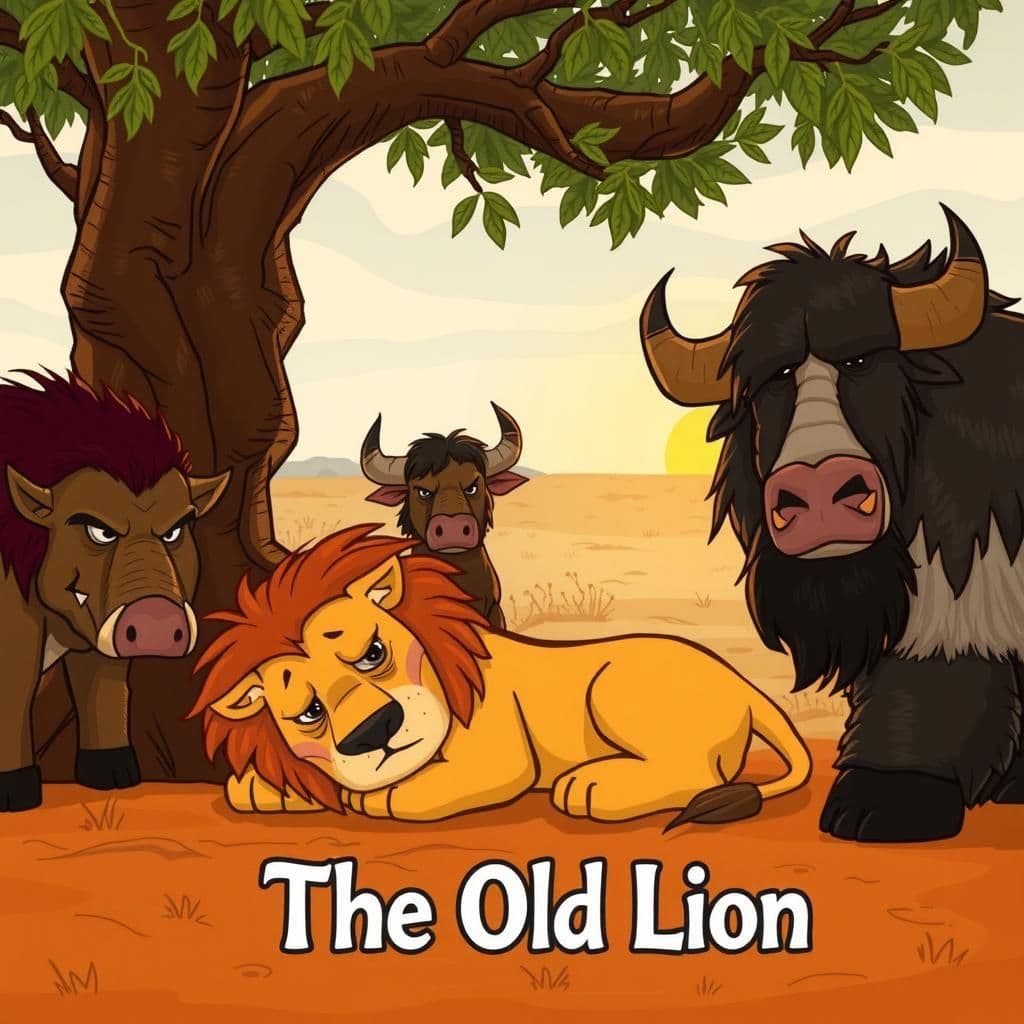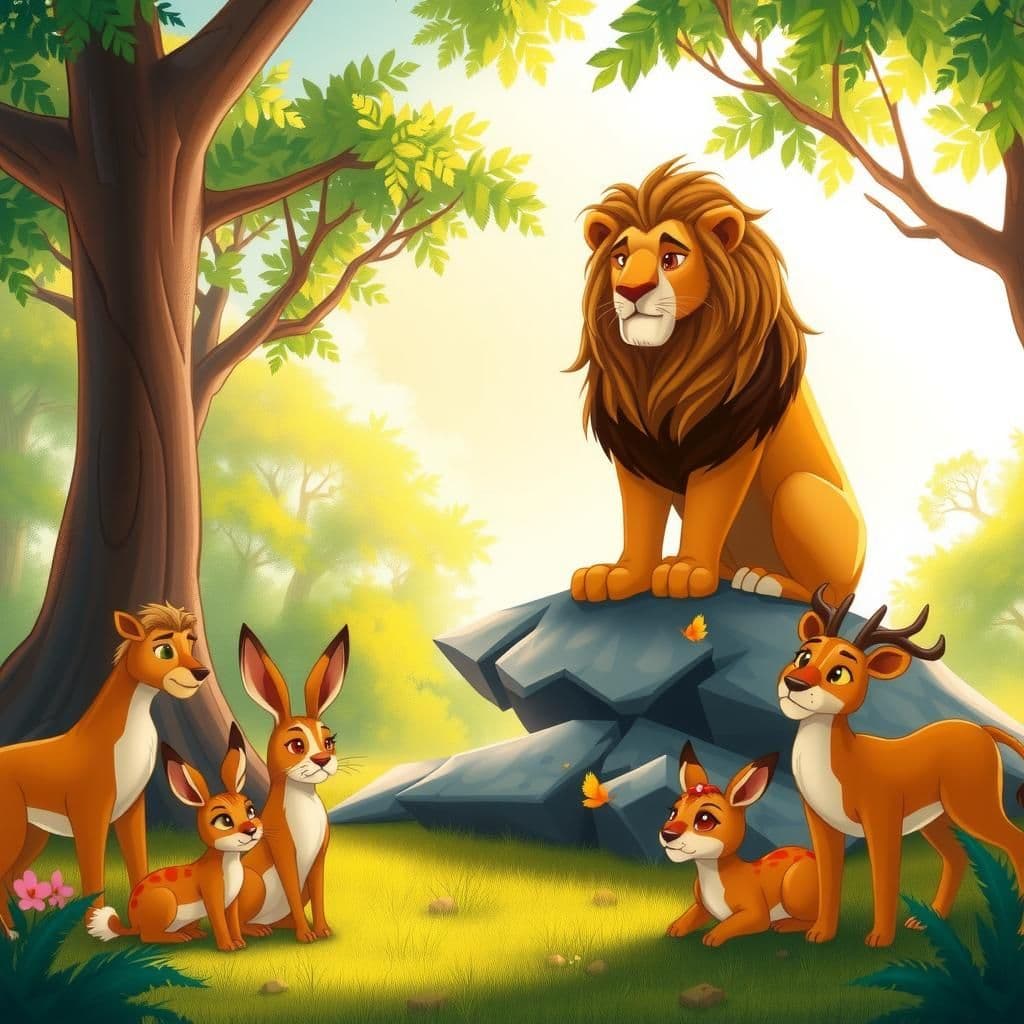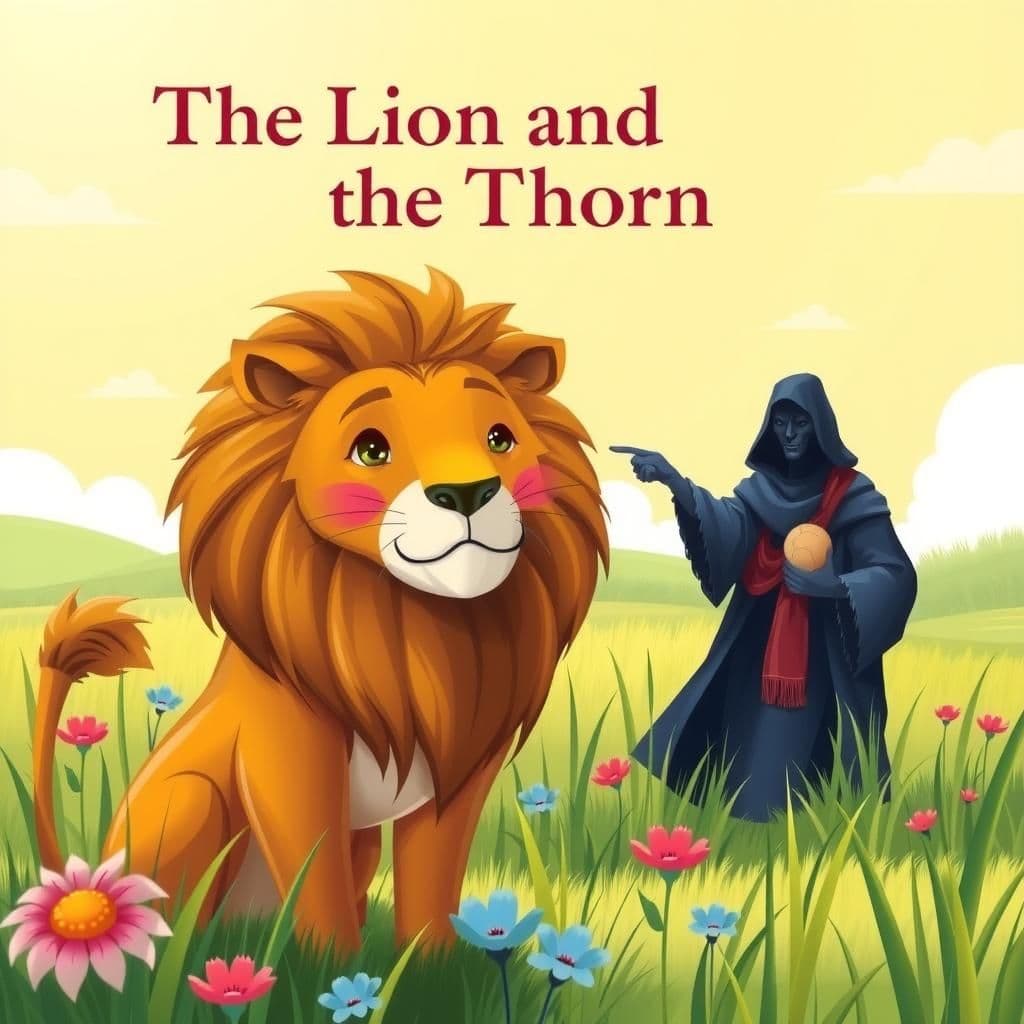The Old Lion
In the short story "The Old Lion," a once-mighty lion, now frail and ill, faces attacks from various animals seeking revenge or asserting dominance, culminating in humiliation from an ass. His lamentation that enduring insults from such a lowly creature feels like a second death underscores the poignant moral of the tale: true dignity is often tested in moments of vulnerability. This concise moral story is a powerful addition to short story collections with moral teachings, reminding readers of the challenges faced in the twilight of power.

Reveal Moral
"The moral of the story is that even the mighty can be humiliated in their weakness, and it is particularly degrading to suffer indignities from those who are lesser."
You May Also Like

The Lion the Wolf and the Fox
In "The Lion, the Wolf, and the Fox," a sick lion receives visits from all the animals except the Fox, which the deceitful Wolf exploits to accuse him of disrespect. When the Fox arrives, he cleverly defends himself by claiming to have sought a cure, ultimately leading to the Wolf being flayed alive as punishment for his ill intentions. This culturally significant moral story emphasizes the importance of promoting good rather than ill will towards others, making it one of the best moral stories for valuable life lessons.

The Kingdom of the Lion
In "The Kingdom of the Lion," a just and gentle Lion unites the beasts of the field and forest with a proclamation for a universal league, promising peace among all creatures, regardless of their strength. However, the instinctive fear of the Hare, who longs for safety yet flees in terror, underscores the challenges of true coexistence and highlights the moral complexities in this simple short story. This entertaining moral tale serves as a poignant reminder of the difficulties in achieving harmony, making it a fitting read for class 7.

The Lion and the Thorn
In this engaging moral tale, a lion, grateful for a shepherd's help in removing a thorn from his foot, spares him after a meal. However, when the shepherd is falsely accused and sentenced to be fed to the lions, one lion recognizes him and claims him as his own, leading to the shepherd's demise at the hands of the very creature he once aided. This timeless moral story serves as a cautionary reminder of how past kindness can be repaid in unexpected ways.
Quick Facts
- Age Group
- adultkidschildrenstory for class 2story for class 3story for class 4story for class 5story for class 6story for class 7story for class 8
- Theme
- the inevitability of declinethe cruelty of the strong towards the weakthe loss of dignity
- Characters
- LionBoarBullAss
Subscribe to Daily Stories
Get a new moral story in your inbox every day.